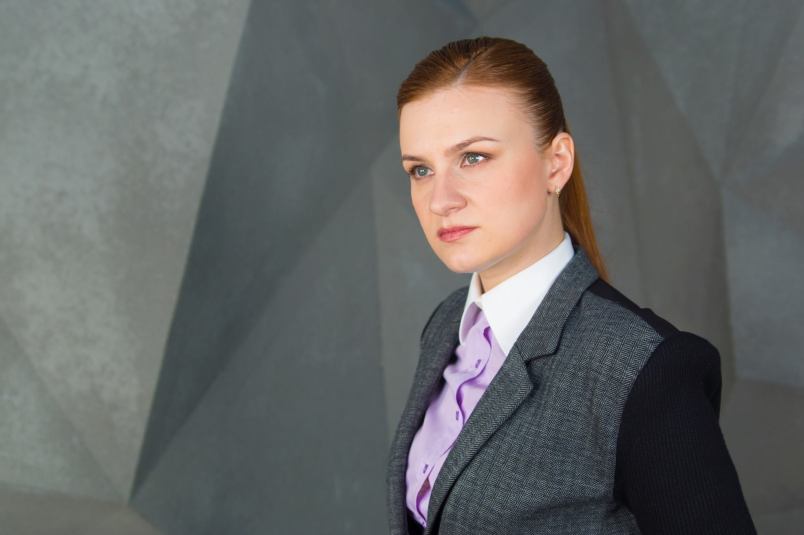Last week’s Justice Department’s indictment of Russian national Mariia Butina refers to her as an “agent of a foreign government and official.”
The word “spy” does not appear anywhere in that six-page document, nor in the initial complaint against her, the accompanying 17-page affidavit filed by an FBI agent, or a 29-page request for pretrial detention. Butina has not been charged with espionage.
Still, she has been referred to as a “spy” by pundits and publications for her years-long effort to infiltrate the National Rifle Association and curry favor with high-level conservative operatives.
Experts on intelligence and the Russian political system told TPM that this is understandable. There’s a lot of overlap between the activities of “foreign agents,” “spies,” and unregistered “operatives.” The three-letter word also fits better in headlines.
But those experts caution that such a loose application of the term is unhelpful and actually works to conceal the specifics of what Butina was allegedly up to and on whose behalf. Spies are typically directly employed by a foreign government’s intelligence agency to gather and transmit information—particularly national defense secrets—back to their home country.
“The intelligence community distinguishes between agents/officers and assets,” Mike Carpenter, a former deputy assistant secretary of defense who focused on Russia, told TPM in an email. “The former are career spies on the agency’s payroll. They recruit the latter, often with money but also by taking advantage of ideological affinities, family connections, and blackmail.”
Butina, Carpenter continued, “seems more like an asset than an agent to me. My guess is she probably craved the access she had to senior Russian officials like [Russian Central Bank Deputy Governor Alexander] Torshin and was used by them as well as by Russia’s intelligence services, who saw in her an opportunity to create a front organization in the United States to penetrate the NRA and ‘2A’ political circles.”
Michael Zeldin, a former federal prosecutor who worked under Robert Mueller in the Justice Department, said calling Butina a “spy” was an “inappropriate, sort of hyperbolic use of that word.”
“These are terms that have very specific meanings; they carry huge criminal penalties,” Zeldin said.
Butina was charged with one count of failing to register as a Russian agent, and another of engaging in conspiracy against the United States.
Court documents related to her case lay out in detail how she allegedly worked at Torshin’s direction to make high-level connections in the NRA and Congress in order to influence policy attitudes towards Russia.
Some of her alleged activities are striking. The FBI alleges that Butina maintained contact information for members of Russia’s intelligence agency, lied about still being employed by Torshin on her F-1 student visa application, and received funding from a billionaire Russian businessman.
But there is no indication that Butina worked directly for the Federal Security Service, or FSB. She and Torshin allegedly spoke openly about their plans in Twitter direct messages, rather than over encrypted apps. Intelligence experts say these sloppy communication habits strongly suggest that the 29-year-old was likely more of an eager freelancer than a skilled intelligence operative.
Anders Aslund, a Russia expert at the Atlantic Council, called Butina’s practices “extremely unprofessional.”
“Her tradecraft, her basic operational security was sufficiently amateurish that she does not strike me as someone who has been trained,” Mark Galeotti, a senior researcher focused on Russia at the Institute of International Relations Prague, added in a phone interview.
Galeotti suggested Butina was something of a “wannabe” and that he’d prefer the term “unregistered foreign operative or lobbyist” to “spy.”
“I go back to this description of political entrepreneur,” Galeotti continued. “This is the way the Russian system works. People who reckon they have some chance of building some kind of connection, acquiring some kind of access which they can then leverage—in effect monetize—whether it’s taking it to the state, taking it to some oligarch or minigarch who might therefore be willing to use it.”
In one alleged exchange cited by prosecutors, Torshin jokingly likened Butina to Anna Chapman, the similarly red-haired spy arrested in the U.S. in 2010 for “recruiting sources and collecting information for Russia.”
The DOJ complaint against Chapman, who was ultimately sent back to Russia as part of a spy swap with the U.S., notes that she and the fellow members of her spy ring worked “to hide all connections between themselves and Russia, even as they act at the direction and under the control of the SVR,” a division of Russia’s external intelligence agency.
That was not Butina’s alleged modus operandi. Though she lied about details of her biography in her interactions with GOP politicians and U.S. gun lobbyists, prosecutors allege, she openly sought to promote Russian interests.
Was it a covert influence operation? As described in the allegations, yes. Was she a spy? Not exactly.







It would seem that we need to wait and see if she’s been spying, or not.
KGB Certified 2nd Amendment protector.
Before we decide what to call her it might be helpful to have a fuller idea of what she did when she was doing whatever it was. If she were a conduit for large amounts of money clandestinely passed to U.S. politicians using the NRA as a front, that would matter. Also she presented herself first as a student and then also as a representative of a Russian gun rights group. To be open about her connections to home would be an expression of seeming innocence, not necessarily a sign of a sloppy amateur. I’ve read that this kind of influence effort is very common in Russian intelligence work—more the rule than the exception. And she’s known to have weapons training. Where an amateur would get that is a good question.
Just another “third-rate burglary”. Nothing to see here, move along…
/s
What do you call a spy named Maria? A spy.